SUMMARY
This is AI generated summarization, which may have errors. For context, always refer to the full article.
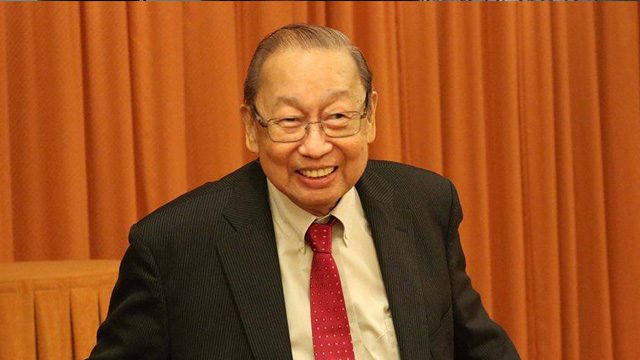
MANILA, Philippines – Jose Maria Canlas “Joma” Sison, founder and ex-chairperson of the Communist Party of the Philippines (CPP), passed away on December 16 in the Netherlands (Saturday, December 17, Manila Time), where he has been living as a political refugee since 1988. He was 83.
A key leader in the longest-running communist insurgency in Asia, Sison split from the Partido Komunista ng Pilipinas-1930 and reorganized it into the current CPP.
Along with former members of the guerrilla Hukbalahap movement led by Bernabe Buscayno, the group founded the New People’s Army (NPA), the armed wing of the CPP that aims to consolidate political power and assist the “people’s democratic revolution.”
Sison was arrested and imprisoned by then-president Ferdinand E. Marcos from November 1977 to March 1986, when he was freed by the Corazon Aquino administration, not long after the overthrow of the dictator. He embarked on a lecture tour in Asia and Europe soon after.
In a Newsbreak magazine interview with Sison in November 2002, he wanted to convey to then-president Aquino that he had no intention of returning to the Philippines.
Sison applied for asylum to the Netherlands in 1988, after his passport was revoked by the Aquino administration, based on the Anti-Subversion Law. After his application was rejected, he applied two more times in 1991 and 1997, and was again rejected. He was recognized as a political refugee in the Netherlands in 1992.
According to Sison’s website, the anti-subversion charges were dismissed in 1992 by a Manila court.
He had considered returning to the Philippines in 1998 to sign a peace treaty on condition that all political prisoners would be released, but the deal fell through. The US government had declared Sison and the CPP-NPA as terrorists in August 2002, freezing their assets and other properties in the US, while limiting business deals in the country.
Sison under Duterte
Sison and his group initially enjoyed having positive relations with the Duterte administration during its first few months. This was part of latest efforts for peace at the time, after five failed attempts under previous administrations.
Duterte, who openly called himself a leftist, once referred to the Communist Party of the Philippines as a “revolutionary government.”
The Philippine government and the National Democratic Front (NDF), the political arm that represents the CPP-NPA in negotiations, started the first rounds of talks in Oslo, Norway in August 2016. Prior to this, several high-ranking officials were also released from prison to participate in the talks, including Benito and Wilma Tiamzon, who were first arrested in March 2014.
Sison, who previously engaged in tirades with Duterte, thanked the then-president for the release and called his conflict with Duterte a “glitch in our communications.” He also said that they “remain good friends.”
“Our friendship has a strong basis in long-standing cooperation and in a common desire to serve the national and democratic rights and best interests of the Filipino people,” Sison said in August 2016.
The ceasefire was short-lived as the CPP-NPA lifted its August 2016 declaration of unilateral ceasefire in February 2017, following continued clashes with the military. Two days later, Duterte ordered the termination of the six-month ceasefire from the government’s side.
The talks eventually collapsed even if the armed group had hoped that negotiations would continue. Duterte said that “peace with the communists might not come in this generation.” He also repeatedly challenged Sison, who had been living in the Netherlands, to come home.
Sison eventually retaliated and tagged Duterte in 2017 as the “number one drug addict” and “number one terrorist in the Philippines.”
Since then, the Duterte administration has engaged in massive red-tagging as part of its intense crackdown on the communist movement. – Rappler.com
Add a comment
How does this make you feel?
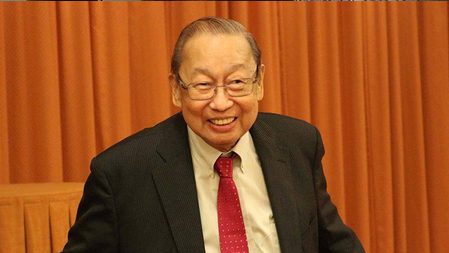
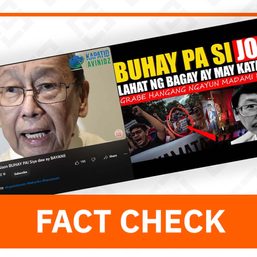
![[OPINION] Was Joma Sison a great man?](https://www.rappler.com/tachyon/2023/01/tl-joma-sison.jpg?resize=257%2C257&crop_strategy=attention)
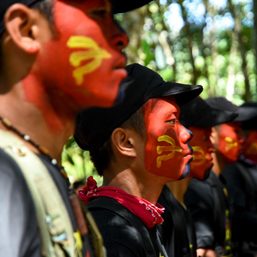
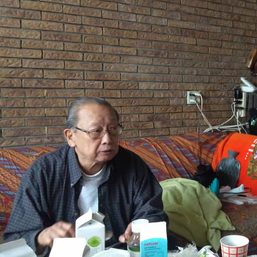
![[The Slingshot] Joma and Duterte: The greatest mutual flattery in Filipino history](https://www.rappler.com/tachyon/2022/12/sison-duterte-december-20-2022.jpg?resize=257%2C257&crop=207px%2C0px%2C900px%2C900px)






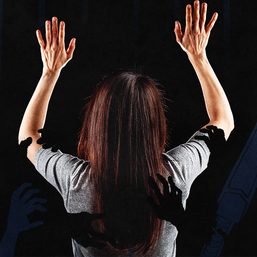
![[Rappler Investigates] Who’s fooling who?](https://www.rappler.com/tachyon/2024/02/rodrigo-sara-duterte-2019.jpeg?resize=257%2C257&crop=167px%2C0px%2C900px%2C900px)
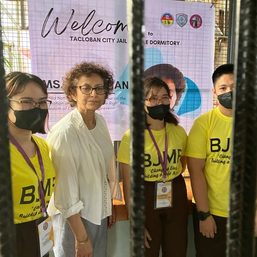
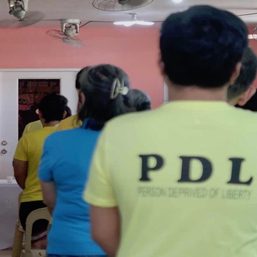
![[Rappler Investigates] What’s it all about, Alice?](https://www.rappler.com/tachyon/2024/05/alice-guo-newsletter-may-30-2024.jpg?resize=257%2C257&crop=292px%2C0px%2C720px%2C720px)



![[OPINION] Drug arrest and jail and prison congestion: Search for alternatives](https://www.rappler.com/tachyon/2023/12/tl-drugs-prison.jpg?resize=257%2C257&crop=391px%2C0px%2C1080px%2C1080px)
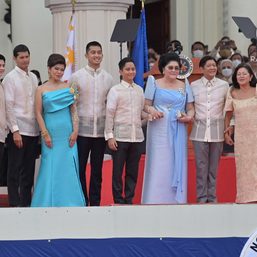
![[EDITORIAL] Ano ang itsura ng kilusang Kaliwa post-Joma Sison?](https://www.rappler.com/tachyon/2022/12/animated-joma-sison-death-carousel.jpg?resize=257%2C257&crop_strategy=attention)
There are no comments yet. Add your comment to start the conversation.